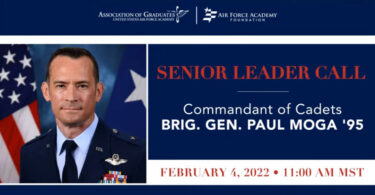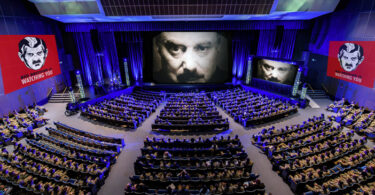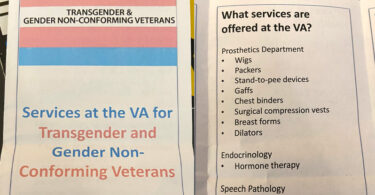By Col. William Connor, USA ret
The Citadel, ’90
Member, Citadel Board of Visitors
With military recruitment and retention at catastrophic lows, it’s time to face the truth. I and many others have written about the polls showing the connection between rising “wokeness” in the military and the plummeting support and trust of conservative military families for the military.
Historically, the greatest indicator of propensity to serve is having a close family member who has served. Additionally, conservative military families have been the mainstay of recruitment.
Another related issue affecting recruitment and retention is the changing ethos in the military.

COL William (Bill) Connor, USA, ret
My entire life has been around and in the military, growing up in a multigenerational Army family and serving for over three decades. Throughout my life, I have seen the changes in the basic ethos of “mission first.” Let me explain.
First, it’s important to go back in history driving the identity of the military over the past half century.
In 1973, the ground forces of the U.S. military had just been withdrawn from Vietnam and simultaneously the all-volunteer force began.
It is hard to overemphasize the effect of this on the soul of the military. The Vietnam War was considered by many to be the first time America “lost” a war, while it arguably became the most unpopular American war.
Unlike any previous American war, Vietnam saw the political left turn against those who fought the war. Overall, loss of trust in the military became pervasive.
Despite moving to an all-volunteer force from a draftee force, it was not until Ronald Reagan’s administration in 1981 that those serving were paid commensurate with volunteer service.
In 1980, Chief of Staff of the Army Gen. “Shy” Meyers publicly admitted the Army was “hollow” due to lack of funding, poor manning and low quality.
Many left during and after Vietnam, but those junior leaders who served in Vietnam and remained after Vietnam, like my father, became a special group of leaders for America.
This group went through the “hollow” years between the end of Vietnam and the Reagan administration. They collectively swore “never again” would the military be hollow.
They took us to the respected military I entered as a junior officer in 1990. The military which won the Cold War and then won “Desert Storm,” defeating the fourth largest Army in the world in 100 hours.
The colonel and generals I served under determined that the hard-earned trust of the American people would never be lost again. They demanded an ethos of selfless service, uncompromising integrity and apolitical advice.
We lived the motto “Mission First, Men Always” and would not compromise by bending to political pressure that compromised national security.
When Bill Clinton came to office in 1993, he prioritized major changes to the military to appease the progressives of the Democratic Party.
Those in senior military leadership under Clinton, like Gen. Colin Powell who had served in Vietnam, would not bend to political pressure.
Powell, the first African American chairman of the Joint Chiefs, was clear that open homosexual service and females in combat arms would be deleterious to combat readiness at that time.
In the end, “Don’t Ask, Don’t Tell” became policy, but the ethos of selfless service and “mission first” trumped politics.
I saw the major turn in the ethos start in the early 2010s. In 2007 and 2008, I served as a senior military adviser to Afghans in Southern Afghanistan. At that time, non-U.S. NATO countries predominated in Southern Afghanistan, so I could compare them the U.S. military.
At that time, the other NATO militaries were experimenting with social engineering while the U.S. had kept to the ethos of “mission first.”
The Obama administration changed that, and social engineering became the priority.
Within a relatively short period of time, “Don’t Ask, Don’t Tell” was ended and same-sex marriage was pushed on the military. Gender integration was forced on even the Infantry, despite objective testing by the Marine Corps showing this resulted in a loss of combat effectiveness.
Lastly came the mandate of transgender service, which the Trump administration blocked but came back under Biden.
During this time, and unlike the Vietnam veteran cohort of generals, the military leadership appeared to give in to the political agenda.
The perception of progressive politization of the military leadership was solidified under the Biden administration’s prioritizing of woke policies in the military.
Unlike Colin Powell and other Vietnam vet leaders pushing back against social engineering, current military leadership was perceived by Americans to be in lock step with ideas like critical race theory and related policies.
Progressive politization of military leadership has drastically undermined the ethos of selfless service and “mission first.” The ethos proved so successful in the regeneration of the military between the 1970s and Desert Storm.
Those seeking to serve the nation in the all-volunteer force want an ethos of “mission first” and selfless service and not political agendas.
It’s time for the American people, through elected representatives in Congress, demand we get back to what the Vietnam veteran junior military leaders gifted the nation after Vietnam.
We are one nation under God and military service is about selflessly protecting the freedoms God bequeathed to us all.
Bill Connor, a retired Army Infantry colonel, author and Orangeburg, SC attorney, has deployed multiple times to the Middle East. Connor was the senior U.S. military adviser to Afghan forces in Helmand Province, where he received the Bronze Star. A Citadel graduate with a JD from USC, he is also a Distinguished Graduate of the U.S. Army War College, earning his of strategic studies. He is the author of the book “Articles from War.” Connor sits on the Citadel’s Board of Visitors.








Leave a Comment